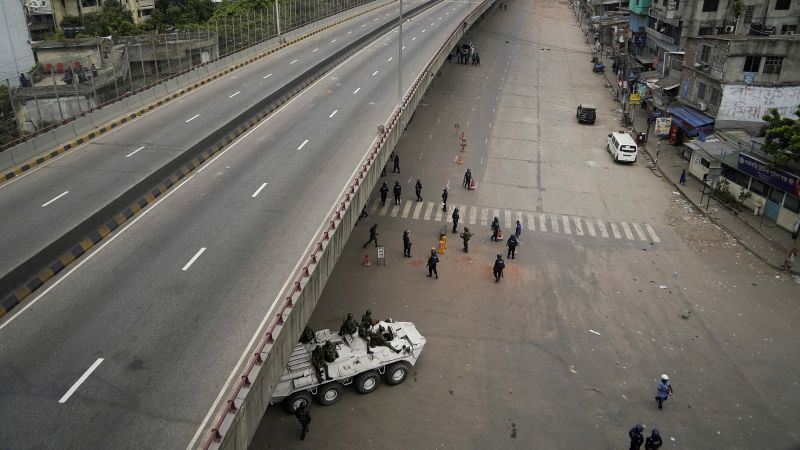Mohammad Ponir Hossain/Reuters
On Friday, anti-quota protesters clashed with Bangladesh Border Guard and police outside the state-run Bangladesh Television in Dhaka, Bangladesh.
CNN
—
Bangladesh’s Supreme Court on Sunday overturned most of the controversial government quotas. sparked violent protests.
Under the quota system, about 30 percent of coveted civil service posts are reserved for relatives of veterans who fought in the 1971 war of independence from Pakistan, and many of the country’s current political elite are related to that generation.
These positions offer job security and high salaries, and with Bangladesh facing high unemployment, the quota system has angered many in the country, especially students and young people.
Protesters took to the streets and university campuses of the capital Dhaka and other cities, with dozens of people reportedly killed and hundreds injured in the violence.
In 2018, the civil service quota system was abolished following similar protests, but in June the High Court ruled the abolition unconstitutional and reinstated the system. On July 10, the Supreme Court suspended the quota system for one month to hear the case.
The country’s Supreme Court on Sunday set aside an earlier ruling that had reinstated quotas and directed that 93 per cent of government jobs would be open to candidates on merit without quotas.
Speaking to local media in Dhaka after the announcement, Shah Monjurul Haque, a lawyer representing the students, said the Supreme Court had “given finality to the quota system.”
“This comprises 93 per cent quota for the general public, 5 per cent quota for freedom fighters and their kin, 1 per cent quota for the minority community and 1 per cent quota for the third gender and physically disabled,” he said.
Annick Rahman/Reuters
Bangladesh army personnel sit in armoured vehicles with police during a curfew imposed in Dhaka on Saturday following student-led protests against government job quotas.
Ahead of the verdict, Bangladesh extended a night-time curfew imposed on Friday to quell the riots until Sunday and deployed soldiers to patrol the streets of the capital, Dhaka, according to Reuters.
Local media said the curfew had been extended until the conclusion of the Supreme Court hearing and was due to continue for an “indeterminate period” after a two-hour break to allow people to collect supplies, Reuters reported.
CNN has attempted to contact the prime minister’s office, the interior ministry and police, but government-imposed power outages appear to leave mobile phone and internet service largely unavailable across the country.
Internet monitoring site NetBlocks said as of Saturday that activity had remained at around 10% for more than 48 hours since the service was shut down on Thursday.
The US State Department on Saturday raised its travel advisory level for Bangladesh, urging its citizens “not to travel” due to “civil unrest, crime and terrorism.”


